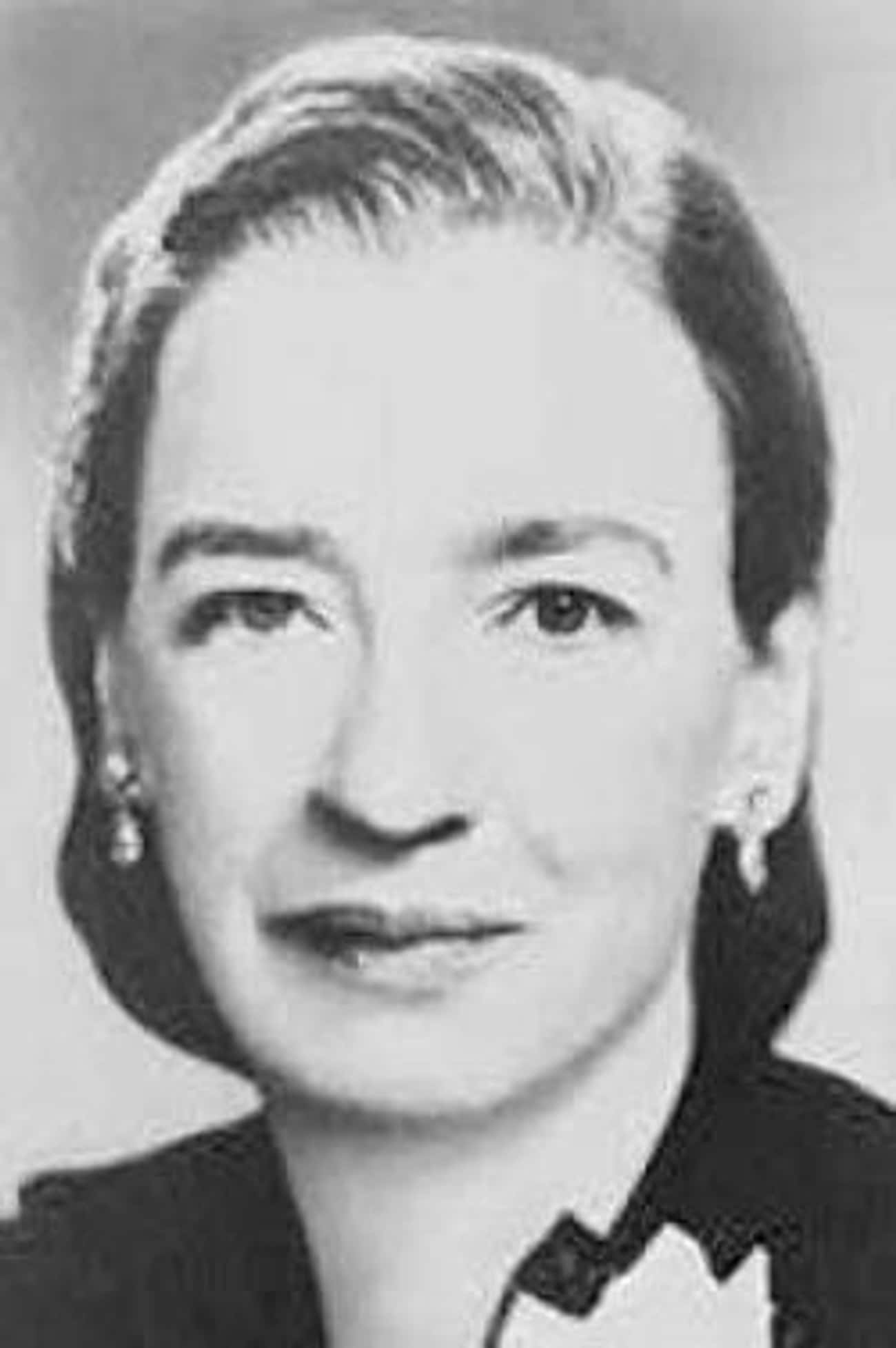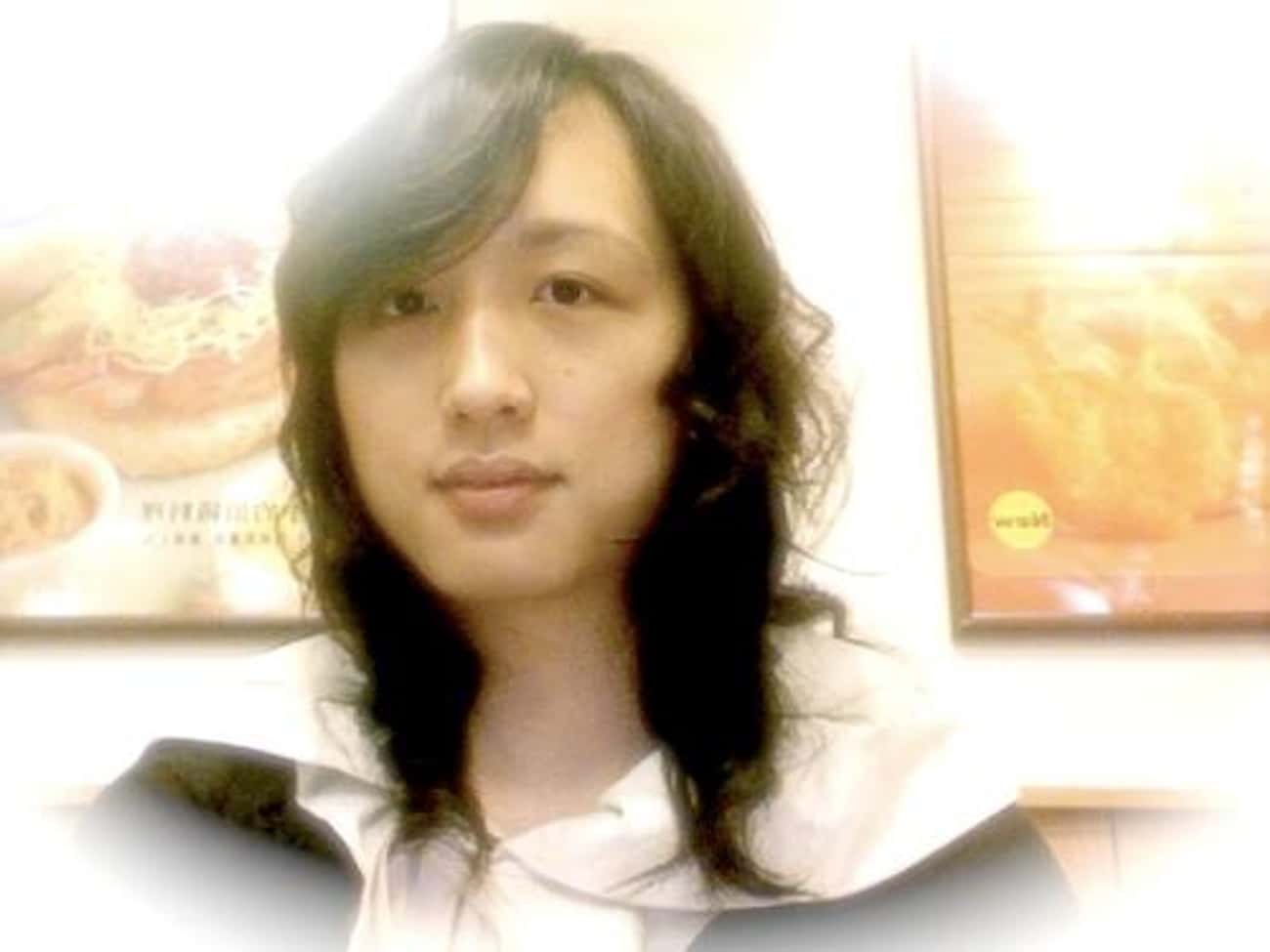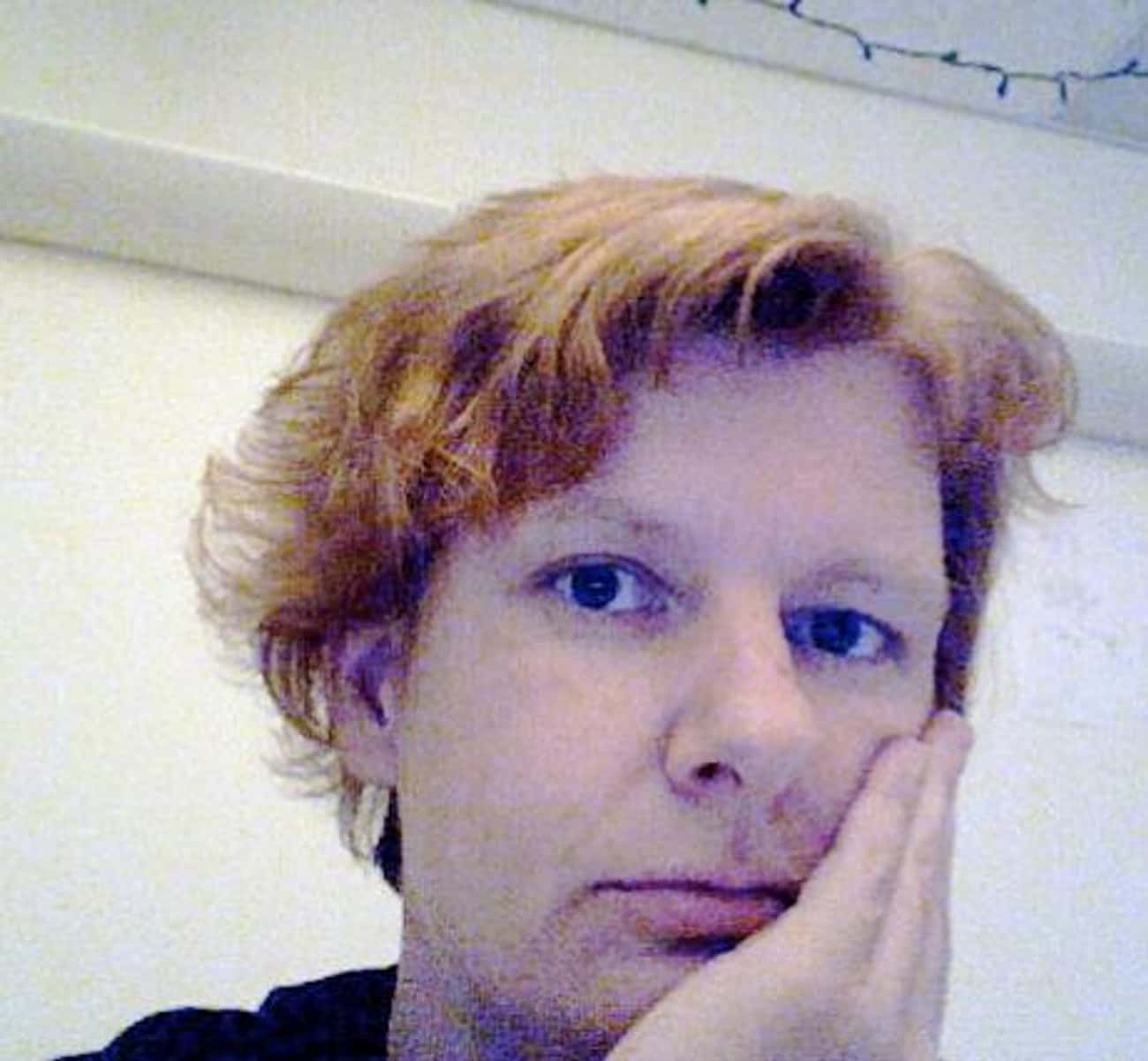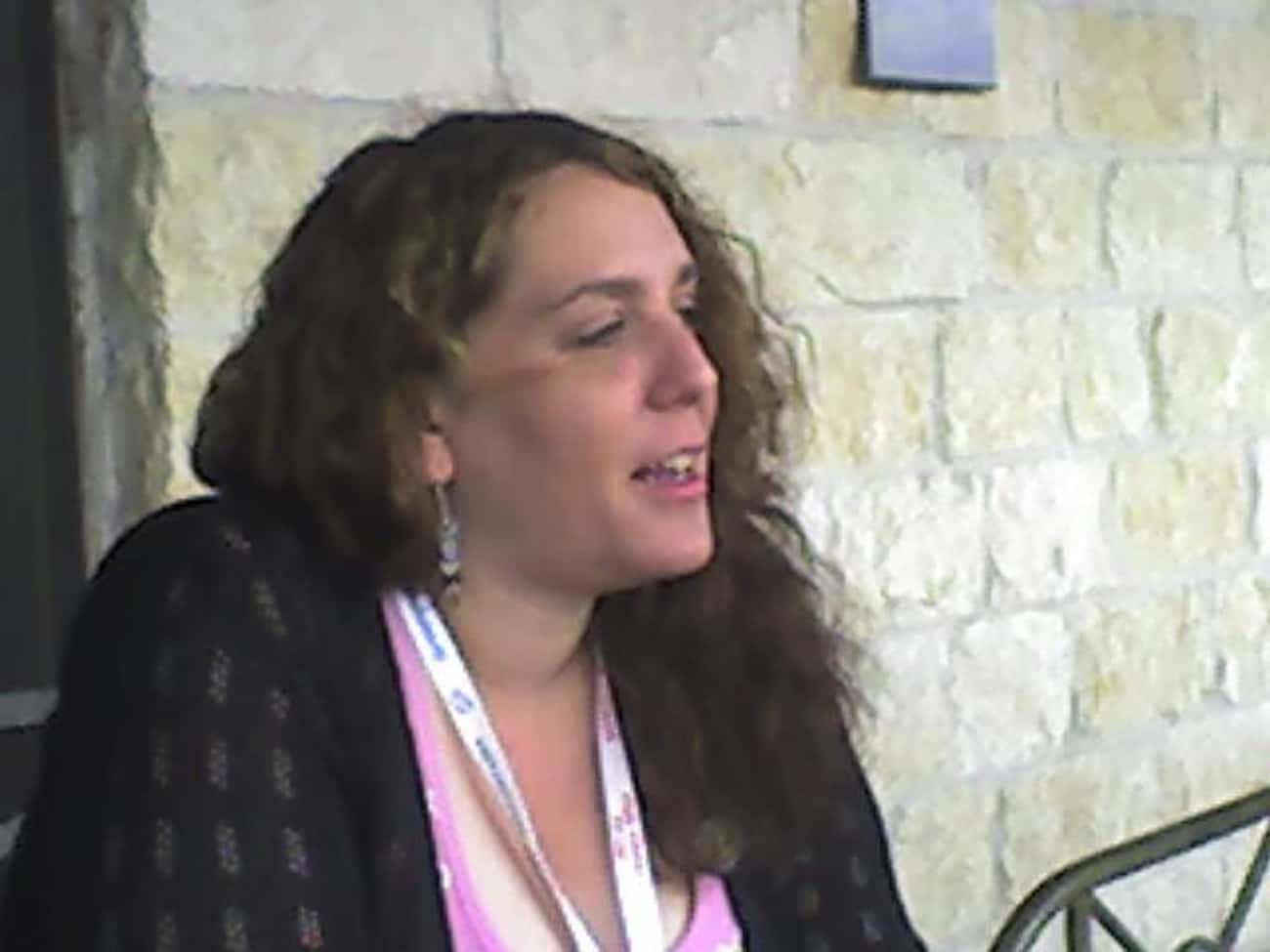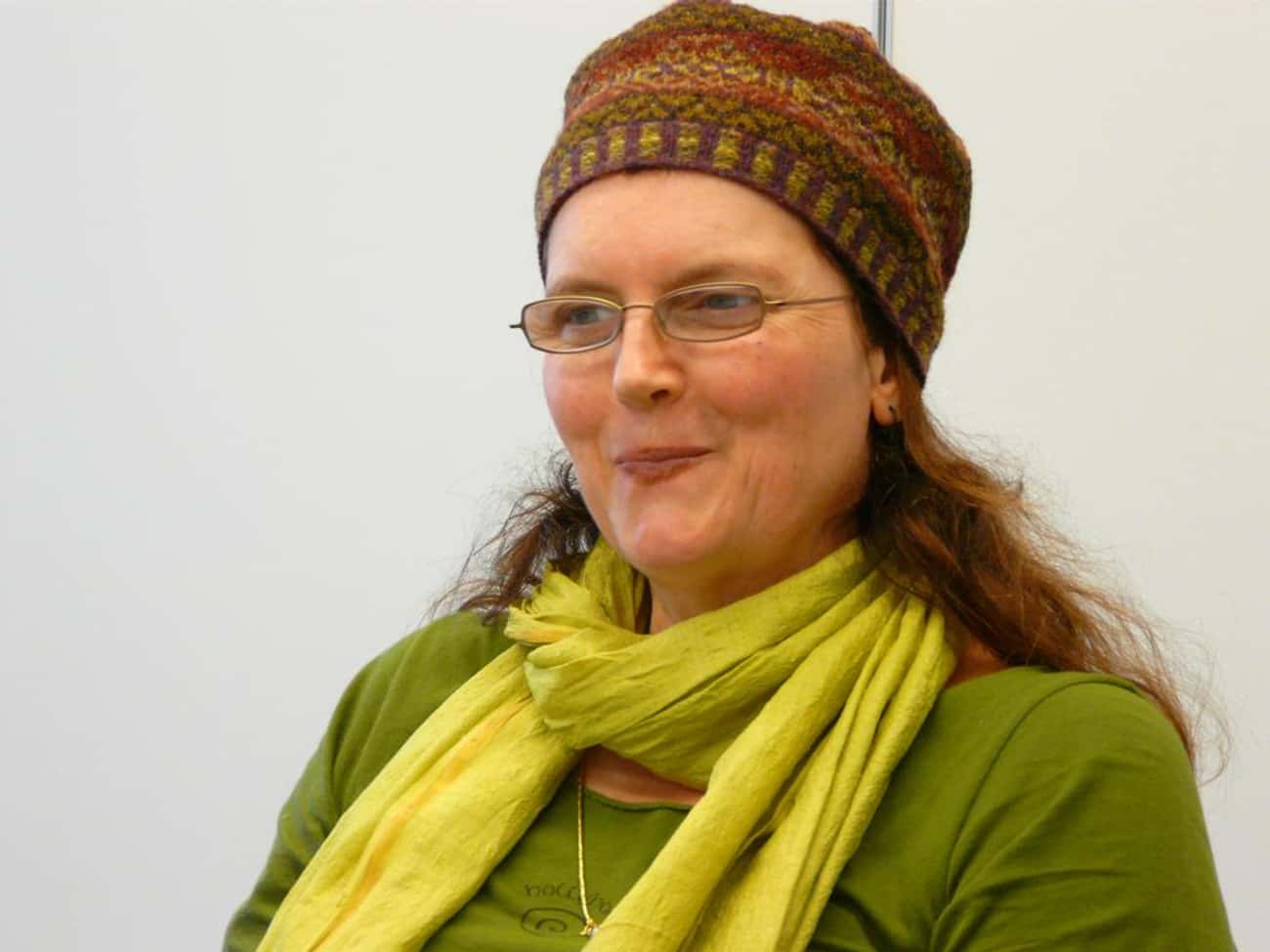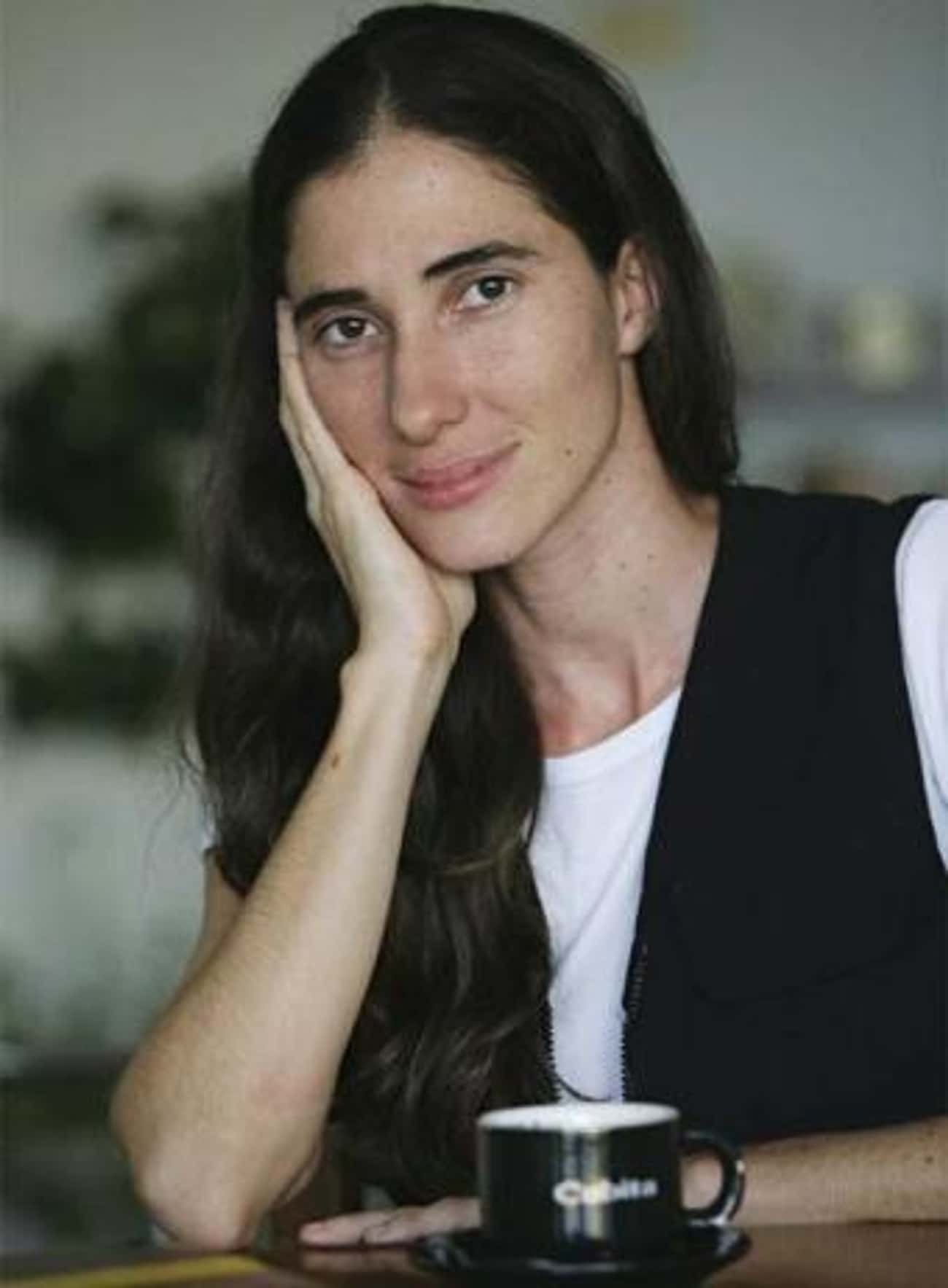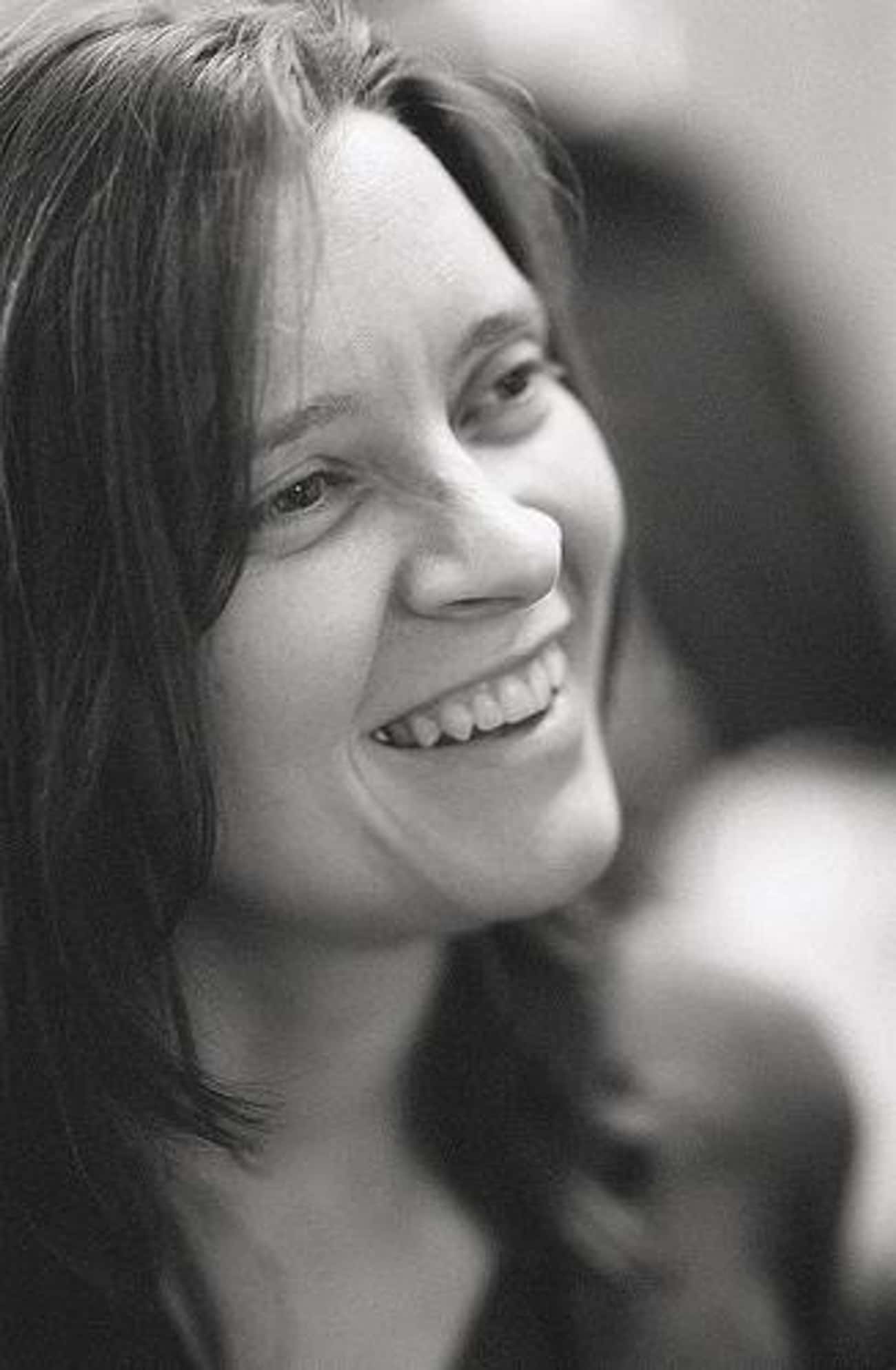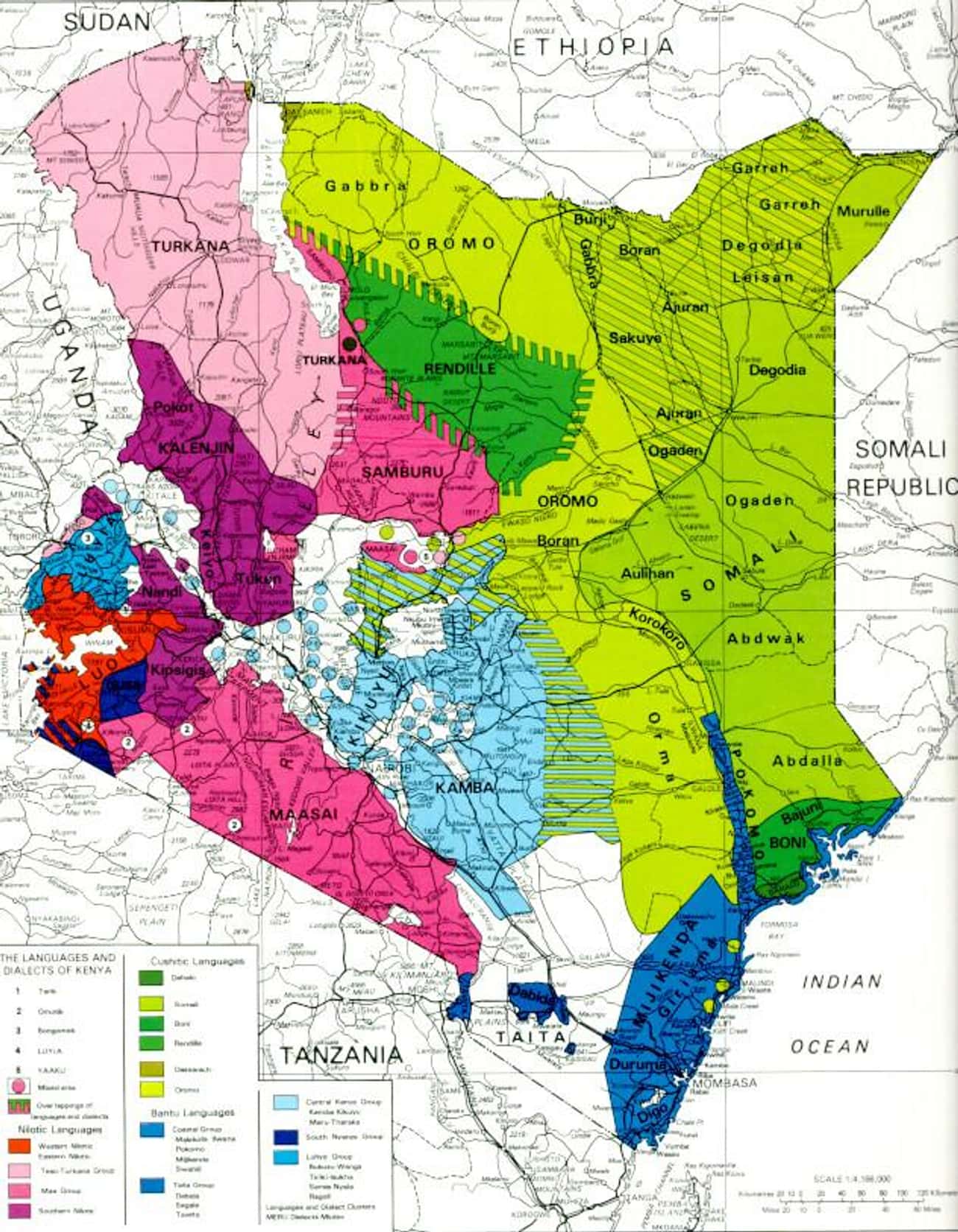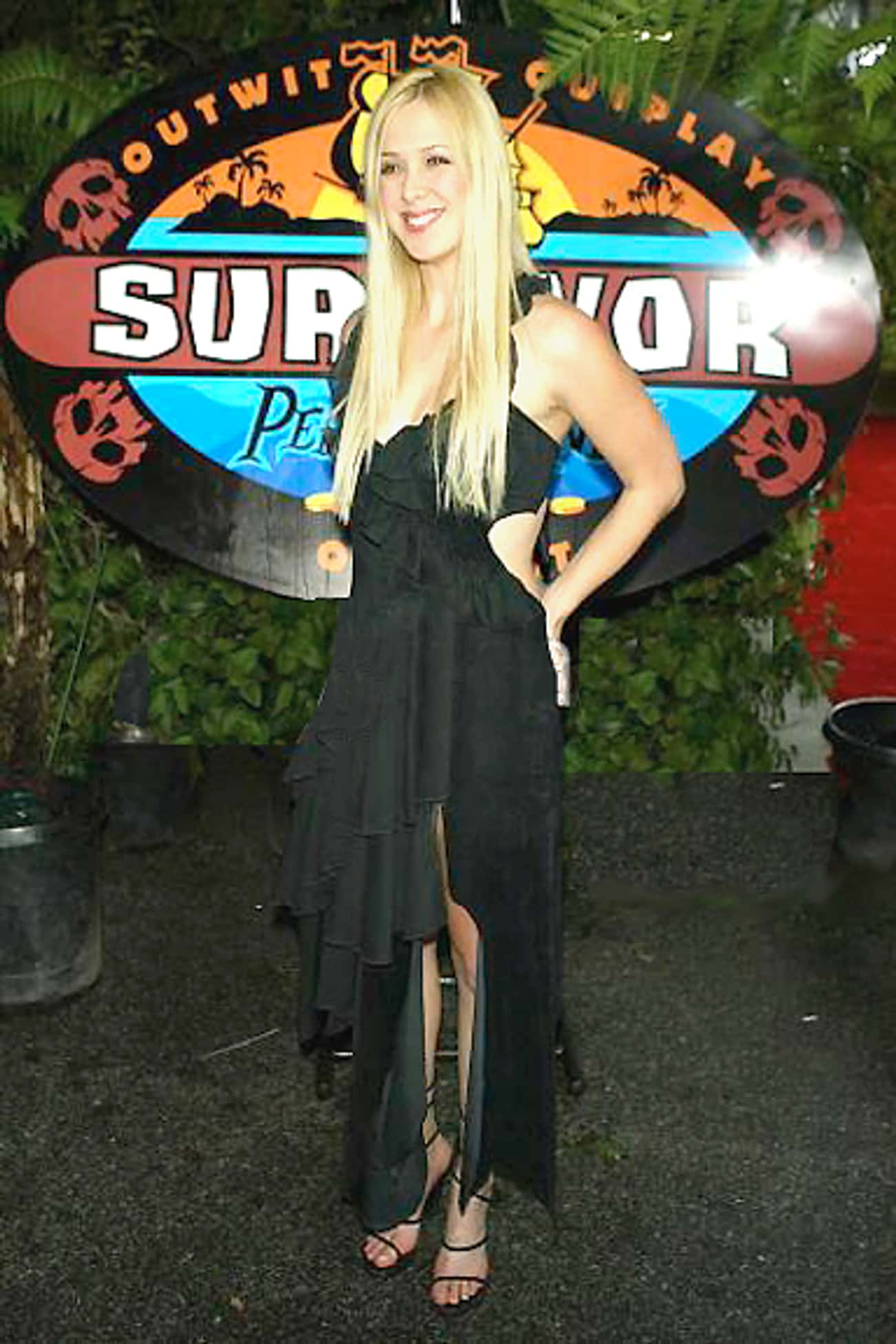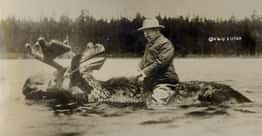Famous Female Programmers
List of famous female programmers, listed by their level of prominence with photos when available. This greatest female programmers list contains the most prominent and top females known for being programmers. There are thousand of females working as programmers in the world, but this list highlights only the most notable ones. Historic programmers have worked hard to become the best that they can be, so if you're a female aspiring to be a programmer then the people below should give you inspiration.
This list has a variety of people in it, from Audrey Tang to Jutta Degener.
While this isn't a list of all female programmers, it does answer the questions "Who are the most famous female programmers?" and "Who are the best female programmers?"- Grace Brewster Murray Hopper (née Murray December 9, 1906 – January 1, 1992) was an American computer scientist and United States Navy rear admiral. One of the first programmers of the Harvard Mark I computer, she was a pioneer of computer programming who invented one of the first linkers. She popularized the idea of machine-independent programming languages, which led to the development of COBOL, an early high-level programming language still in use today. Prior to joining the Navy, Hopper earned a Ph.D. in mathematics from Yale University and was a professor of mathematics at Vassar College. Hopper attempted to enlist in the Navy during World War II but was rejected because she was 34 years old. She instead joined the Navy Reserves. Hopper began her computing career in 1944 when she worked on the Harvard Mark I team led by Howard H. Aiken. In 1949, she joined the Eckert–Mauchly Computer Corporation and was part of the team that developed the UNIVAC I computer. At Eckert–Mauchly she began developing the compiler. She believed that a programming language based on English was possible. Her compiler converted English terms into machine code understood by computers. By 1952, Hopper had finished her program linker (originally called a compiler), which was written for the A-0 System. During her wartime service, she co-authored three papers based on her work on the Harvard Mark 1. In 1954, Eckert–Mauchly chose Hopper to lead their department for automatic programming, and she led the release of some of the first compiled languages like FLOW-MATIC. In 1959, she participated in the CODASYL consortium, which consulted Hopper to guide them in creating a machine-independent programming language. This led to the COBOL language, which was inspired by her idea of a language being based on English words. In 1966, she retired from the Naval Reserve, but in 1967 the Navy recalled her to active duty. She retired from the Navy in 1986 and found work as a consultant for the Digital Equipment Corporation, sharing her computing experiences. The U.S. Navy Arleigh Burke-class guided-missile destroyer USS Hopper was named for her, as was the Cray XE6 "Hopper" supercomputer at NERSC. During her lifetime, Hopper was awarded 40 honorary degrees from universities across the world. A college at Yale University was renamed in her honor. In 1991, she received the National Medal of Technology. On November 22, 2016, she was posthumously awarded the Presidential Medal of Freedom by President Barack Obama.More Grace Hopper
- #62 of 152 onThe Most Powerful Women Of All Time
- #584 of 3,210 onThe Most Influential People of All Time
- #1 of 19 onThe Greatest Renaissance Women in American History
- Photo: Metaweb (FB)Leah Culver is a programmer. Culver is a 2006 computer science graduate of the University of Minnesota. In 2007, she co-founded the micro-blogging site Pownce, acquired by Six Apart in December 2008. She left Six Apart in February 2010. She co-founded Convore, focused on real time chat in 2011. In 2012, Convore added a new product, Grove.io which focuses on hosted real-time chat for companies and announced that Convore service will be discontinued on April 1, 2012. On September 15, Grove.io announced that it will cease service on October 13, 2012. Shortly thereafter on September 28, 2012, Revolution Systems announced that they had acquired Grove.io and would be continuing its operations. Currently she works in the Developer Advocate team at Dropbox. Culver was named among the Most Influential Women in Web 2.0 by Fast Company Magazine in November 2008.
- Photo: Metaweb (FB) / CC-BYRebecca Ann Heineman (born William Salvador Heineman) is an American video game designer and programmer. A long-time veteran of the video game industry (originally credited mostly as Bill Heineman), Heineman was a founding member of video game companies Interplay Productions, Logicware, Contraband Entertainment and Olde Sküül. She acts as chief executive officer for Olde Sküül since 2013.
- Photo: Metaweb / CC-BYJamie Faye Fenton (born Jay Fenton) is a game programmer best known for the 1981 hit arcade game Gorf and for being one of the creators of MacroMind's VideoWorks software (since renamed Macromedia Director). Jamie has been active in the transgender community and transitioned from male to female around 1998. Fenton was drawn to computer technology while in school because its highly predictable nature appealed to her and it provided a haven from being picked on by other students.In 1978, Jamie created an early example of glitch art entitled Digital TV Dinner
- Photo: Metaweb (FB) / Public domainAudrey Tang (born 18 April 1981; formerly known as Autrijus Tang) is a Taiwanese free software programmer, who has been described as one of the "ten greats of Taiwanese computing personalities". In August 2016, she was invited to join the Taiwan Executive Yuan as a minister without portfolio, making her the first transgender official in the top executive cabinet.
- Photo: Metaweb (FB) / CC-BY-2.5
- Robin Moulder (born April 2, 1966) is an American musician, best known as being one of the founders of the riot goth-girl group Jack Off Jill and her subsequent project, TCR. She is a bassist, pianist, and programmer.
- Photo: Metaweb (FB) / CC-BY-SA-2.0Molly E. Holzschlag (born January 25, 1963) is a U.S. author, lecturer and advocate of the Open Web. She has written or co-authored 35 books on web design and open standards, including The Zen of CSS Design: Visual Enlightenment for the Web (co-authored with Dave Shea). In 1998, she was named one of the Webgrrls San Francisco chapter's Top 25 Women on the Web.
- Pamela Kyle Crossley (born 18 November 1953) is an historian of modern China, northern Asia, and global history and holds the Charles and Elfriede Collis Professor of History, Dartmouth College. She is a founding appointment of the Dartmouth Society of Fellows. She is author of The Wobbling Pivot: China since 1800: An Interpretive History (2010), as well as influential studies of the Qing dynasty (1644–1911) and leading textbooks in global history. Crossley is known for an interpretation of the source of twentieth-century identities. In her view overland conquest by the great empires of early modern Eurasia produced a special form of rulership which gave high priority to the institutionalization of cultural identity. Crossley suggests that these concepts were encoded in political practice and academic discourse on "nationalism," and prevailed till the end of the twentieth century.
- Photo: Metaweb (FB) / CC-BYDanese Cooper (born January 19, 1959) is an American programmer, computer scientist and advocate of open source software.
- Elaine Jessica Weyuker is an ACM Fellow, an IEEE Fellow (since 2003), and an AT&T Fellow at Bell Labs for research in software metrics and testing as well as elected to the National Academy of Engineering. She is the author of over 130 papers in journals and refereed conference proceedings.
- Photo: Metaweb (FB) / Public domainFrances Elizabeth Holberton (March 7, 1917 – December 8, 2001) was one of the six original programmers of the first general-purpose electronic digital computer, ENIAC. Holberton invented breakpoints in computer debugging.
- Photo: Metaweb (FB) / Public domainYoani María Sánchez Cordero (born September 4, 1975) is a Cuban blogger who has achieved international fame and multiple international awards for her critical portrayal of life in Cuba under its current government. Sánchez attended primary school during the affluent time when the Soviet Union was providing considerable aid to Cuba. However, her high school and university education coincided with the loss of financial aid to Cuba following the Soviet Union's collapse, creating a highly public educational system and style of living that subsequently left Sánchez with a strong need for personal privacy. Sánchez's university education left her with two understandings; first, that she had acquired a disgust for "high culture", and second that she no longer had an interest in philology, her chosen field of university study. Sánchez, disillusioned with her home country, left Cuba for Switzerland in 2002, and it was during this time that she became interested in computer science. When she finally returned to Cuba, Sánchez helped to establish Contodos, a magazine that continues to act as a forum for Cuban free expression, and a vehicle for reporting news. Sánchez is best known for her blog, Generación Y (Generation Y); which, despite censorship in Cuba, she is able to publish by e-mailing the blog entries to friends outside the country who then post them online. The blog is translated and available in 17 languages. Time magazine listed her as one of the world's 100 most influential people in 2008, stating that "under the nose of a regime that has never tolerated dissent, Sánchez has practiced what paper-bound journalists in her country cannot; freedom of speech". In November 2009, U.S. President Barack Obama, wrote that her blog "provides the world a unique window into the realities of daily life in Cuba" and applauded her efforts to "empower fellow Cubans to express themselves through the use of technology".
- Lois Mitchell Haibt (born 1934) is an American computer scientist best known for being a member of the ten-person team at IBM that developed FORTRAN, the first successful high-level programming language. She is known as an early pioneer in computer science.
- Lynne Greer Jolitz (born June 30, 1961) is a figure in free software and founded many startups in Silicon Valley with her husband William. Lynne Jolitz is probably most famous for her work in pioneering open source operating systems with 386BSD with her husband. She has founded startup companies that involve workstations to companies in Internet multimedia. Lynne is also a noted author and authority on operating systems and networking issues. Lynne is an internet news media commentator discussing events in the computer industry and wrote frequently for BYTE. She also holds patents in internet technologies and semiconductor memory innovations, and writes technical papers and articles. She is currently an adviser to CoolClip network, an internet startup that uses the server-based video production engine that Lynne originally designed and tested at the University of California, Berkeley.Lynne has appeared on the Oracle E-Business Network and was presented with their Geek of the Week award for her years of work in high-speed networking and operating systems design. Lynne also has appeared on Dvorak’s RealComputing discussing the impact of Internet broadband. She received an alumni award from the Physics Department at Berkeley for her work in alumni outreach with the department. She also is active in women’s entrepreneur and technology networking groups and mentoring girls in science and technology. She and her husband reside in Los Gatos, California with their children Rebecca, Benjamin and Sarah.
- Elizabeth "Bess" D. Rather is the co-founder of FORTH, Inc. and is a leading expert in the Forth programming language. She became involved with Forth while she was at the University of Arizona, but working part-time for National Radio Astronomy Observatory (NRAO). While she initially aimed to rewrite their systems (written in Forth) in FORTRAN, her discovery of the power of Forth convinced her to leave the University to work for NRAO and Kitt Peak National Observatory, where she wrote the first Forth manual and started popularizing the language in the scientific community. She co-founded FORTH, Inc with Charles Moore in 1973. Since then, she has become an expert in the language and one of its main proponents. She is an author of several books on the subject and has given many training seminars on its usage. From 1980 till 2006, she was President of FORTH, Inc., headquartered in the Los Angeles area. From 1986 to 1994, she was chair of the Technical Committee X3J14 that developed the ANSI Standard (X3.215-1994) for the Forth programming language.In 2006, she retired and lives in Hawaii, but continues with occasional Forth-related writing and teaching projects.
- Sylvia Juncosa is an American punk and metal guitarist, singer, songwriter and keyboardist from Los Angeles. Noted primarily for her guitar work, during the 1980s she was among relatively few women with established aggressive rock guitar credibility. She released four solo albums and three albums with her band To Damascus after starting her career as a keyboard player in The Leaving Trains. She was also a member of the band SWA with ex-Black Flag bass player Chuck Dukowski. She was active from 1980 to 1995 before taking a hiatus, then started playing guitar again in 2009.
- Photo: Metaweb (FB) / CC-BY-SA-2.0Allison Randal is a software developer and author. She was the chief architect of the Parrot virtual machine, a member of the board of directors for The Perl Foundation, a director of the Python Software Foundation from 2010 to 2012, and the chairman of the Parrot Foundation. She is also the lead developer of Punie, the port of Perl 1 to Parrot. She is co-author of Perl 6 and Parrot Essentials and the Synopses of Perl 6. She was employed by O'Reilly Media. From August 2010 till February 2012, Randal was the Technical Architect of Ubuntu at Canonical.In 2009, Randal was chair of O'Reilly's Open Source Convention (OSCON). She was elected a fellow of the Python Software Foundation in 2010.She is currently a director of the Open Source Initiative and was its president between 2015 and 2017, taking over from and handing back to Simon Phipps. She also serves on the OpenStack Foundation board of directors.
- Amy Ruth Briggs (born 1962) is an American video game implementor known for creating Plundered Hearts, an interactive fiction computer game published by Infocom in 1987.
- Photo: Metaweb (FB) / Public domain
Zeituni Onyango
Zeituni Onyango ( zay-TUN-ee on-YAHNG-goh; May 29, 1952 – April 7, 2014) was known as the half-aunt of United States President Barack Obama; she was born into the Luo tribe in Kenya. Born during the British rule of the Protectorate of Kenya, Onyango was the half-sister of Barack Obama Sr., father to the president. The younger Obama refers to her as "Aunti Zeituni" in his 1995 memoir, Dreams from My Father. In 2002 she had applied for political asylum in the United States but was denied. She became notable when her case was leaked in the final days of the 2008 U.S. presidential campaign in which Barack Obama was the Democratic candidate, attracting international media attention.In 2000, Onyango entered the United States on a temporary visa to accompany her son to college; she remained past its expiration date. In 2002 she sought political asylum in the United States, citing ethnic violence, as Kenya and East Africa had suffered an escalation in violence in the 2000s. Her case was denied in 2004. She remained in South Boston, Massachusetts, where she lived in public housing, and retained legal representation to try to gain asylum.Her case highlighted "the hot-button topic of illegal immigration" in a presidential race that had avoided it, as well as contradictory rules governing eligibility for public housing in Massachusetts. The Massachusetts Department of Human Services investigated how her case was leaked. There was heightened federal administrative review on asylum deportations until after the 2008 general election. Onyango's case is often cited in light of immigration reform efforts of the Obama administration. - Catherine M. "Cathy" Hudgins (born 1944) is a Democratic member of the Fairfax County Board of Supervisors; representing the Hunter Mill district, which includes the town of Reston and town of Vienna. In 1984 she was Virginia's National Committeewoman on the Democratic National Committee; as well as the leader of Virginia's delegation to the 1988 Democratic National Convention.She worked twelve years in the private sector for AT&T as a programmer, consultant, and analyst.Hudgins was elected to the Board of Supervisors in November 1999, defeating incumbent Republican supervisor Robert B. Dix, Jr.In April 2013, Hudgins was diagnosed with noninvasive breast cancer.
- Christa Hastie is a former contestant on the reality television show Survivor: Pearl Islands.
Cathryn Mataga
Cathryn Mataga (born William Mataga) is a game programmer and founder of independent video game company Junglevision. Under the name William, she wrote Atari 8-bit computer games for Synapse Software in the early to mid 1980s, including Shamus.Kimberly Dorn
Dona Bailey
Dona Bailey is an American video game programmer and educator who, along with Ed Logg in 1981, created the arcade video game Centipede.As a young programmer Bailey was hired by General Motors and trained in assembly language programming. She worked there for two years on displays, and microprocessor-based cruise control systems. She became interested in Space Invaders and the world of arcade games, another application of the work she was doing at GM. She found out that Atari was using the same microprocessor in its games.In 1980, Bailey joined Atari's coin-op division, where she was the only woman. In an interview Bailey recalled that Atari had a notebook of possible game ideas at the time. Of the 30 or so entries the only one without "lasering or frying things" was a short description of a bug winding down the screen. "It didn't seem bad to shoot a bug".Bailey left Atari in 1982 and went to work at Videa (later renamed Sente Technologies), founded by three former Atari employees. In 2007, she was the keynote speaker at the Women in Games International Conference. Bailey holds M.Ed. and M.A. degrees and taught as a faculty member in the department of Rhetoric and Writing at the University of Arkansas at Little Rock until her retirement.


